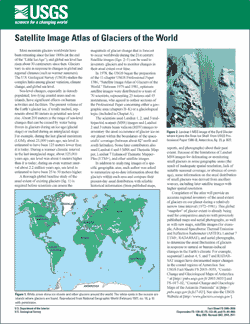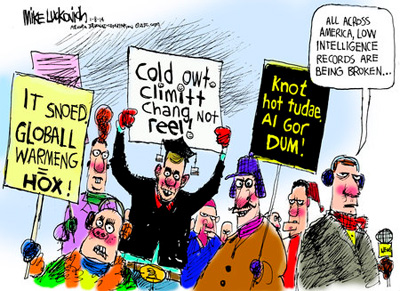Old Rocks
Diamond Member
The scientist most involved in studying the affects of global warming are climatologists, meteorologists, geologists, and oceanographers.
Geologists have been presenting the evidence for many years concerning the changes in the climate and the effects that they are seeing from those changes. Here is the Geological Society of America statement on the matter;
The Geological Society of America - Position Statement on Climate Change
Position Statement
Decades of scientific research have shown that climate can change from both natural and anthropogenic causes. The Geological Society of America (GSA) concurs with assessments by the National Academies of Science (2005), the National Research Council (2011), the Intergovernmental Panel on Climate Change (IPCC, 2013) and the U.S. Global Change Research Program (Melillo et al., 2014) that global climate has warmed in response to increasing concentrations of carbon dioxide (CO2) and other greenhouse gases. The concentrations of greenhouse gases in the atmosphere are now higher than they have been for many thousands of years. Human activities (mainly greenhouse-gas emissions) are the dominant cause of the rapid warming since the middle 1900s (IPCC, 2013). If the upward trend in greenhouse-gas concentrations continues, the projected global climate change by the end of the twenty-first century will result in significant impacts on humans and other species. The tangible effects of climate change are already occurring. Addressing the challenges posed by climate change will require a combination of adaptation to the changes that are likely to occur and global reductions of CO2 emissions from anthropogenic sources.
Purpose
This position statement (1) summarizes the scientific basis for the conclusion that human activities are the primary cause of recent global warming; (2) describes the significant effects on humans and ecosystems as greenhouse-gas concentrations and global climate reach projected levels; and (3) provides information for policy decisions guiding mitigation and adaptation strategies designed to address the current and future impacts of anthropogenic warming.
There is much more to this statement which you can find at the website.
Geologists have been presenting the evidence for many years concerning the changes in the climate and the effects that they are seeing from those changes. Here is the Geological Society of America statement on the matter;
The Geological Society of America - Position Statement on Climate Change
Position Statement
Decades of scientific research have shown that climate can change from both natural and anthropogenic causes. The Geological Society of America (GSA) concurs with assessments by the National Academies of Science (2005), the National Research Council (2011), the Intergovernmental Panel on Climate Change (IPCC, 2013) and the U.S. Global Change Research Program (Melillo et al., 2014) that global climate has warmed in response to increasing concentrations of carbon dioxide (CO2) and other greenhouse gases. The concentrations of greenhouse gases in the atmosphere are now higher than they have been for many thousands of years. Human activities (mainly greenhouse-gas emissions) are the dominant cause of the rapid warming since the middle 1900s (IPCC, 2013). If the upward trend in greenhouse-gas concentrations continues, the projected global climate change by the end of the twenty-first century will result in significant impacts on humans and other species. The tangible effects of climate change are already occurring. Addressing the challenges posed by climate change will require a combination of adaptation to the changes that are likely to occur and global reductions of CO2 emissions from anthropogenic sources.
Purpose
This position statement (1) summarizes the scientific basis for the conclusion that human activities are the primary cause of recent global warming; (2) describes the significant effects on humans and ecosystems as greenhouse-gas concentrations and global climate reach projected levels; and (3) provides information for policy decisions guiding mitigation and adaptation strategies designed to address the current and future impacts of anthropogenic warming.
There is much more to this statement which you can find at the website.





